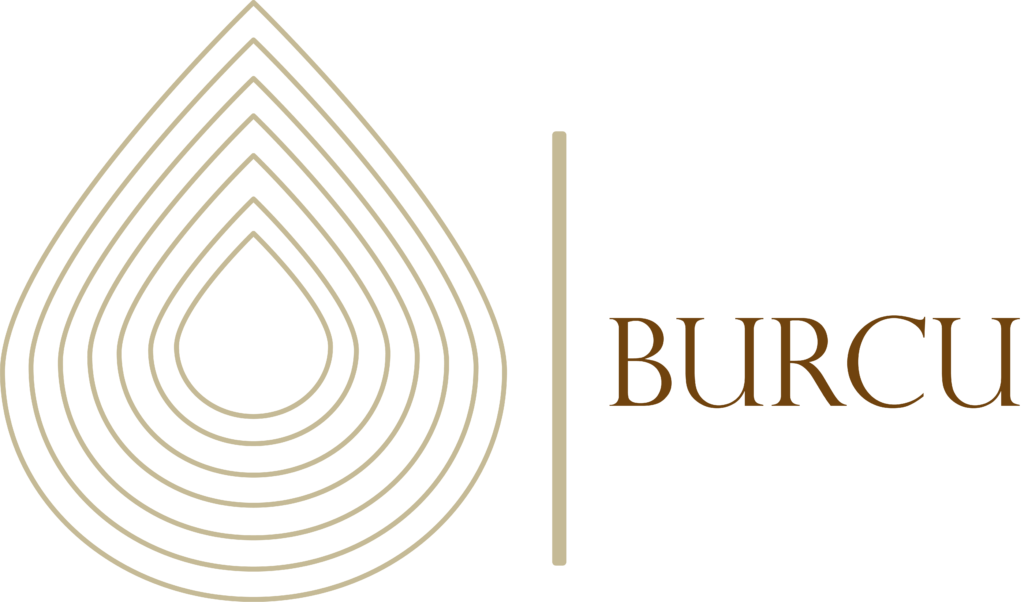
Announcements
For upcoming trainings and seminars check below
In the realm of personal development and coaching, existential coaching stands out as a profound and transformative approach. Rooted in existential philosophy, this form of coaching delves deep into questions of existence, meaning, and purpose. In a world filled with rapid changes and existential uncertainties, existential coaching offers individuals a framework to explore their values, beliefs, and aspirations, ultimately guiding them towards a more authentic and fulfilling life. Let’s embark on a journey to understand the essence of existential coaching and its profound impact on personal growth and self-discovery.
Understanding Existential Coaching: Existential coaching is based on the existentialist philosophy that emphasizes individual freedom, responsibility, and the search for meaning in life. Coaches trained in this approach help clients explore existential themes such as identity, choice, mortality, and the human condition. Rather than focusing solely on external goals or achievements, existential coaching invites clients to delve into their innermost thoughts, emotions, and existential concerns.
Key Principles of Existential Coaching:
- Self-Reflection: Existential coaching encourages deep self-reflection and introspection. Clients are prompted to examine their values, beliefs, fears, and aspirations, gaining clarity about what truly matters to them.
- Embracing Uncertainty: Existential coaching acknowledges the inherent uncertainty of life and helps clients embrace ambiguity and change. Rather than seeking definitive answers, clients learn to navigate life’s complexities with resilience and adaptability.
- Personal Responsibility: A central tenet of existential coaching is the idea of personal responsibility. Clients are empowered to take ownership of their choices, actions, and life path, recognizing that they have the power to create meaning and purpose.
- Authenticity: Authenticity is highly valued in existential coaching. Clients are encouraged to live in alignment with their core values, express their true selves, and cultivate genuine relationships and experiences.
- Meaning-Making: Exploring life’s meaning and purpose is a fundamental aspect of existential coaching. Coaches assist clients in uncovering and creating meaning in their lives, fostering a sense of fulfillment and connection.
Benefits of Existential Coaching:
- Clarity and Direction: Through deep introspection and reflection, clients gain clarity about their values, goals, and aspirations, leading to a clearer sense of direction in life.
- Increased Self-Awareness: Existential coaching promotes self-awareness and self-discovery, helping clients understand their strengths, weaknesses, and inner motivations.
- Resilience and Adaptability: By embracing uncertainty and taking responsibility for their lives, clients develop resilience, adaptability, and a greater capacity to cope with life’s challenges.
- Enhanced Relationships: Authenticity and meaningful connections are fostered in existential coaching, leading to healthier and more fulfilling relationships with oneself and others.
- Greater Life Satisfaction: Ultimately, existential coaching aims to help clients live authentically, find meaning, and experience a deeper sense of fulfillment and satisfaction in life.
The Role of the Existential Coach: Existential coaches serve as guides and facilitators in the client’s journey of self-discovery and personal growth. They create a safe and non-judgmental space for exploration, ask thought-provoking questions, and provide support, insight, and perspective. Existential coaches also draw from various techniques and exercises, such as reflective writing, philosophical inquiry, and mindfulness practices, to deepen the coaching process.
Incorporating Existential Coaching Into Your Life: If you’re interested in exploring existential themes and enhancing your personal growth, consider working with an existential coach. Be open to self-exploration, embrace the journey of self-discovery, and engage in meaningful conversations about life’s deeper questions. Remember that existential coaching is a collaborative process that empowers you to live authentically and meaningfully.
Exploring Existential Coaching: Navigating Life’s Meaning and Purpose
In a world filled with constant hustle and bustle, finding moments of peace and connection with oneself has become increasingly essential. One ancient practice that continues to stand the test of time in promoting holistic well-being is yoga. Originating in ancient India, yoga has evolved into a global phenomenon, offering a pathway to physical, mental, and spiritual wellness. In this blog, we delve into the transformative power of yoga and explore how it can positively impact our lives.
Understanding Yoga: At its core, yoga is much more than a series of physical postures or asanas. It encompasses a holistic approach to health, integrating breath control, meditation, and mindfulness practices. The word “yoga” itself means union, symbolizing the harmony between mind, body, and spirit that practitioners strive to achieve.
Physical Benefits: One of the most visible aspects of yoga is its physical benefits. Regular practice can improve flexibility, strength, and balance. The various poses, from downward dog to warrior poses, work on different muscle groups, promoting overall fitness and agility. Additionally, yoga is gentle on the joints, making it accessible to people of all ages and fitness levels.
Mental and Emotional Well-being: Beyond the physical realm, yoga offers profound benefits for mental and emotional well-being. The emphasis on deep, conscious breathing helps calm the mind and reduce stress. Mindfulness techniques cultivated through yoga practice enable practitioners to stay present in the moment, fostering a sense of clarity and inner peace. Studies have shown that yoga can reduce symptoms of anxiety, depression, and chronic stress, making it a valuable tool for mental health management.
Spiritual Connection: For many practitioners, yoga serves as a spiritual journey, providing a deeper connection with oneself and the world around them. The practice of yoga encourages self-reflection, introspection, and acceptance. Through meditation and guided relaxation, individuals can tap into a sense of inner wisdom and transcend the limitations of the ego, leading to a greater sense of purpose and fulfillment.
Yoga Styles and Variations: Yoga is incredibly diverse, with various styles and traditions to suit different preferences and needs. Hatha yoga focuses on the foundational postures and is great for beginners. Vinyasa yoga synchronizes movement with breath, creating a dynamic flow. Restorative yoga emphasizes relaxation and rejuvenation, while Kundalini yoga incorporates spiritual and energetic practices. Whether you prefer a vigorous workout or a gentle stretch, there’s a yoga style for everyone.
Incorporating Yoga Into Daily Life: The beauty of yoga lies in its accessibility and adaptability. You don’t need fancy equipment or a specific setting to practice yoga; all you need is a willingness to connect with yourself. Integrating even a few minutes of yoga into your daily routine can yield significant benefits. Whether it’s a morning sun salutation to energize your day or an evening restorative practice to unwind, find what works for you and commit to regular practice.
The Transformative Power of Yoga: A Journey to Mind-Body Wellness
In recent years, there has been a growing focus on the importance of fascia in overall health and fitness. Fascia, the connective tissue that surrounds muscles, bones, and organs, plays a crucial role in maintaining structural integrity and facilitating movement. Fascia bodyworkout, a form of exercise that targets this intricate network of tissues, has gained popularity for its potential benefits in enhancing flexibility, reducing pain, and improving athletic performance. Let’s delve into the fascinating world of fascia bodyworkout and discover how it can revolutionize your fitness journey.
Understanding Fascia: Before delving into fascia bodyworkout, it’s essential to understand what fascia is and its significance in the body. Fascia is a three-dimensional web of connective tissue that runs throughout the entire body, providing support and stability to muscles and organs. It plays a crucial role in transmitting forces, maintaining posture, and allowing for smooth, coordinated movement.
The Fascia Bodyworkout Approach: Unlike traditional workouts that primarily focus on isolated muscles, fascia bodyworkout takes a holistic approach, targeting the fascial system as a whole. These workouts typically involve dynamic movements, stretching, and myofascial release techniques designed to improve fascial flexibility, hydration, and resilience.
Key Benefits of Fascia Bodyworkout:
- Improved Flexibility: By targeting the fascial network, bodyworkout exercises can enhance flexibility and range of motion. This is particularly beneficial for athletes, dancers, and individuals looking to improve mobility in daily activities.
- Enhanced Performance: Strong and supple fascia supports efficient movement patterns and can lead to improved athletic performance. Fascia bodyworkout helps optimize muscle function, coordination, and overall biomechanics.
- Reduced Pain and Tension: Tight or restricted fascia can contribute to muscle imbalances, chronic pain, and tension. Bodyworkout techniques such as foam rolling, stretching, and fascial release can alleviate these issues and promote relaxation.
- Injury Prevention: A healthy fascial system is essential for injury prevention. Fascia bodyworkout strengthens the connective tissues, reduces the risk of strains and sprains, and promotes faster recovery after workouts or injuries.
- Mind-Body Connection: Engaging in fascia bodyworkout fosters a deeper awareness of the mind-body connection. Mindful movement, breathwork, and proprioceptive exercises can enhance body awareness and mindfulness.
Sample Fascia Bodyworkout Exercises:
- Foam Rolling: Use a foam roller to massage and release tension in various muscle groups, focusing on areas of tightness or discomfort.
- Dynamic Stretching: Incorporate dynamic stretches that target multiple muscle groups and encourage fluid movement patterns.
- Fascial Release Techniques: Utilize tools like massage balls or specialized rollers to perform myofascial release techniques, targeting specific fascial adhesions or trigger points.
- Elastic Band Exercises: Incorporate resistance bands into your workout to engage the fascial system and promote functional strength and flexibility.
- Mindful Movement Practices: Practice mindful movement sequences that emphasize breath awareness, alignment, and smooth transitions between poses or movements.
Incorporating Fascia Bodyworkout Into Your Routine: To reap the benefits of fascia bodyworkout, it’s important to integrate these exercises into your fitness routine consistently. Start with a warm-up to prepare your body, then incorporate fascia-focused exercises into your workout regimen. Listen to your body, adjust intensity as needed, and prioritize proper form and technique.
Exploring the Fascinating World of Fascia Bodyworkout

Services


